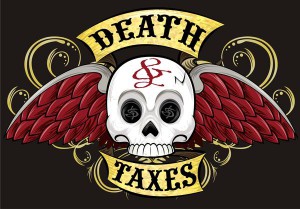Death and Taxes: the Basics
I often get asked if “probate still exists”. Yes, probate still exists, but probate is not a tax. Essentially, a grant of probate is the authorisation an executor gets from the Supreme Court once a Will has been proved and allows an executor to deal with estate assets.
What most people actually mean when they ask “does probate still exist?” is “what taxes apply” on death?
Well, there are not death duties or estate taxes in Australia!
The taxes that apply to an estate after someone dies are mainly income tax, stamp duty and capital gains tax.
Income tax
A final tax return will often need to be done for the deceased individual, up until the date they die. If the estate earns any income before it is distributed to beneficiaries (like interest or dividends) then the estate may also need to do a tax return to pay income tax.
Stamp duty
If real estate is gifted to someone under a Will, then there is no stamp duty payable on the transfer of that land in Victoria.
If someone buys the real estate from the estate (even if that person was partially a beneficiary) then there is stamp duty paid by the purchaser, just like if they were purchasing any other property.
Capital gains tax
Generally, if real estate (or other capital asset) is gifted to someone under a Will, then there is also no capital gains tax payable, because the transfer doesn’t amount to a disposal of an asset for CGT purposes.
However, what does change is the asset’s cost base in the hands of the beneficiary when they come to sell the property. This is probably a good thing, because they don’t inherit a low cost base if the deceased had owned the property for a while. The cost base is reset to the market value as at the date of death.
The main residence exemption on capital gains tax applies for two years after the date of death, so the estate can sell the property within that time and not incur capital gains tax.




